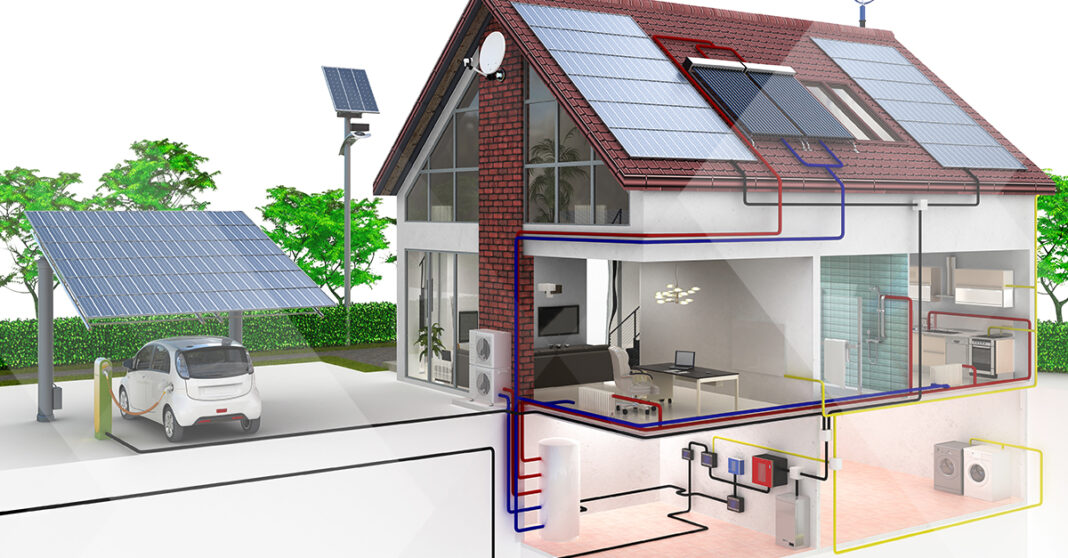Is a Smart Home Sustainable? Unveiling the Eco-Friendly Potential of Modern Living
In an era defined by technological advancements, the concept of a smart home has become increasingly popular. With promises of convenience, energy efficiency, and enhanced security, smart homes are transforming the way we live. However, as we embrace these innovations, it’s crucial to ask a pertinent question: Is a smart home sustainable?
The Rise of Smart Homes
![]()
Smart homes integrate cutting-edge technologies to automate and optimize various aspects of daily life. From thermostats that learn your preferences to lights that respond to your voice commands, these systems aim to make our lives more comfortable and efficient. Yet, in our pursuit of convenience, we must not overlook the environmental impact of these advancements.
Energy Efficiency: A Key Player
One of the primary claims of sustainability in smart homes lies in their potential for energy efficiency. Smart devices are designed to adapt to your lifestyle, learning patterns and adjusting settings to minimize energy consumption. For instance, smart thermostats can optimize heating and cooling based on your habits, ultimately reducing energy waste.
Lighting the Way to Sustainability
Customary lighting sources, like brilliant bulbs, have for some time been known for their shortcoming. Shrewd lighting arrangements, then again, use Drove innovation and can be controlled from a distance, permitting clients to change splendor and mood killer lights when not required. This recoveries energy as well as expands the life expectancy of bulbs, adding to a decrease in electronic waste.
The Power of Renewable Energy Integration

To truly make a smart home sustainable, integration with renewable energy sources is crucial. Pairing smart home systems with solar panels, for example, can significantly reduce reliance on conventional energy grids. Smart energy management systems can optimize the usage of renewable energy, storing excess power for later use and ensuring a more sustainable energy profile.
The Dark Side of Connectivity
While the potential for sustainability in smart homes is promising, the interconnected nature of these devices raises concerns. The constant exchange of data between devices requires substantial energy, often from non-renewable sources. Additionally, the manufacturing and disposal of electronic devices contribute to electronic waste, a growing environmental challenge.
Mindful Consumption and E-Waste Management
Sustainability in smart homes extends beyond energy efficiency. Responsible consumption and proper disposal of electronic devices play a crucial role. Manufacturers need to prioritize eco-friendly materials, and consumers should be encouraged to recycle or repurpose old devices. Initiatives promoting e-waste awareness and recycling programs can mitigate the environmental impact of smart home technology.
Balancing Act: Convenience vs. Sustainability
![]()
The allure of smart homes lies in the promise of a more convenient and connected lifestyle. However, finding the balance between convenience and sustainability is essential. Users should be mindful of unnecessary energy consumption, opting for automation only when it genuinely enhances efficiency.
The Future of Sustainable Smart Homes
As development continues to advance, so does the potential for functional splendid homes. Headways in materials, energy limit, and man-created mental ability can moreover work on the eco-obliging pieces of these structures. Imaginative work tries should be facilitated towards restricting biological impact and growing the positive responsibilities of splendid home advancement.
Conclusion: Striking the Right Balance
In conclusion, the sustainability of a smart home is not a straightforward answer but a nuanced consideration of various factors. While these homes have the potential to be environmentally friendly, achieving true sustainability requires a conscious effort from both manufacturers and consumers. As we embrace the convenience of smart living, let us not forget our responsibility to ensure that the future is not just technologically advanced but also sustainable for generations to come.


